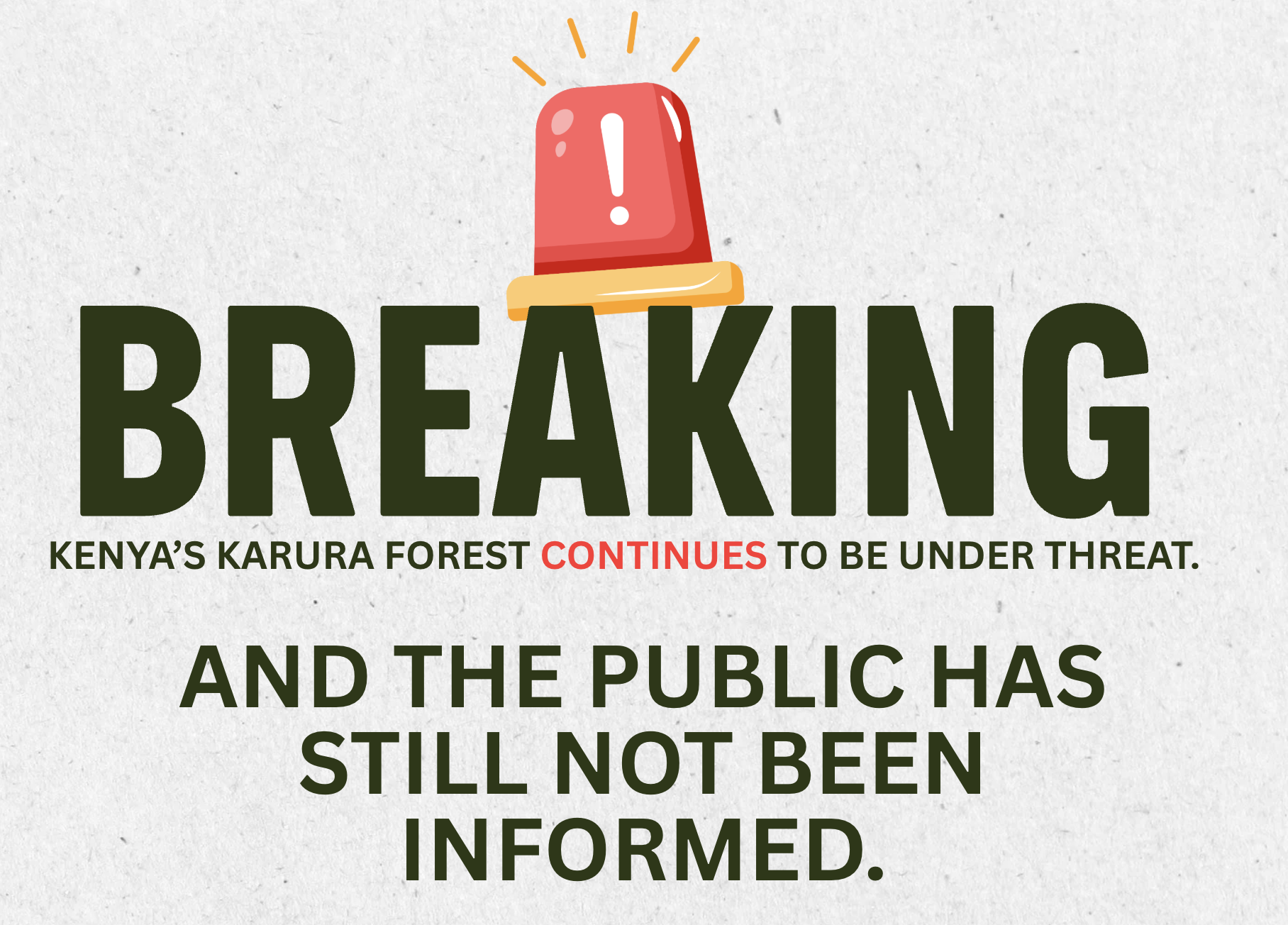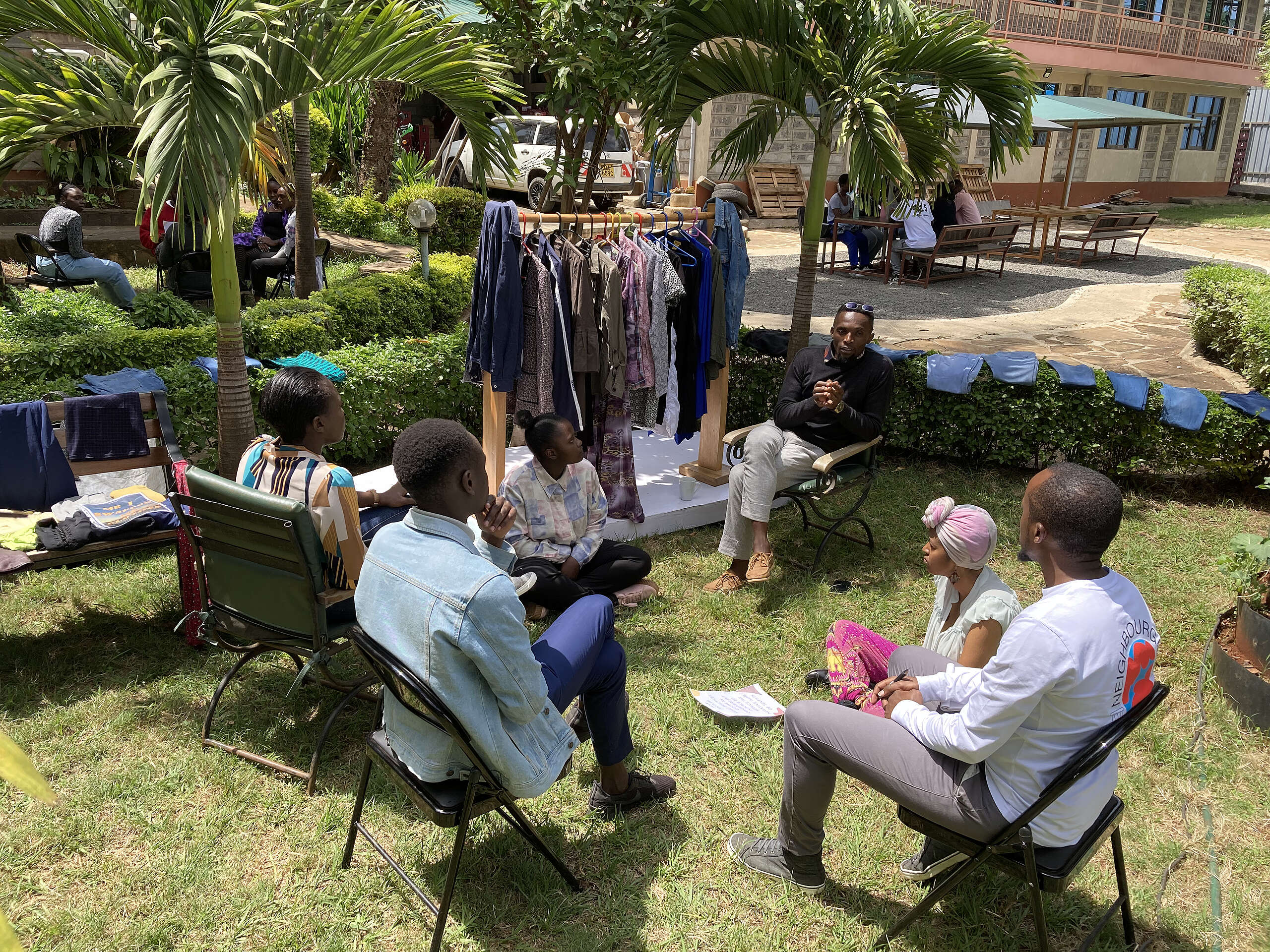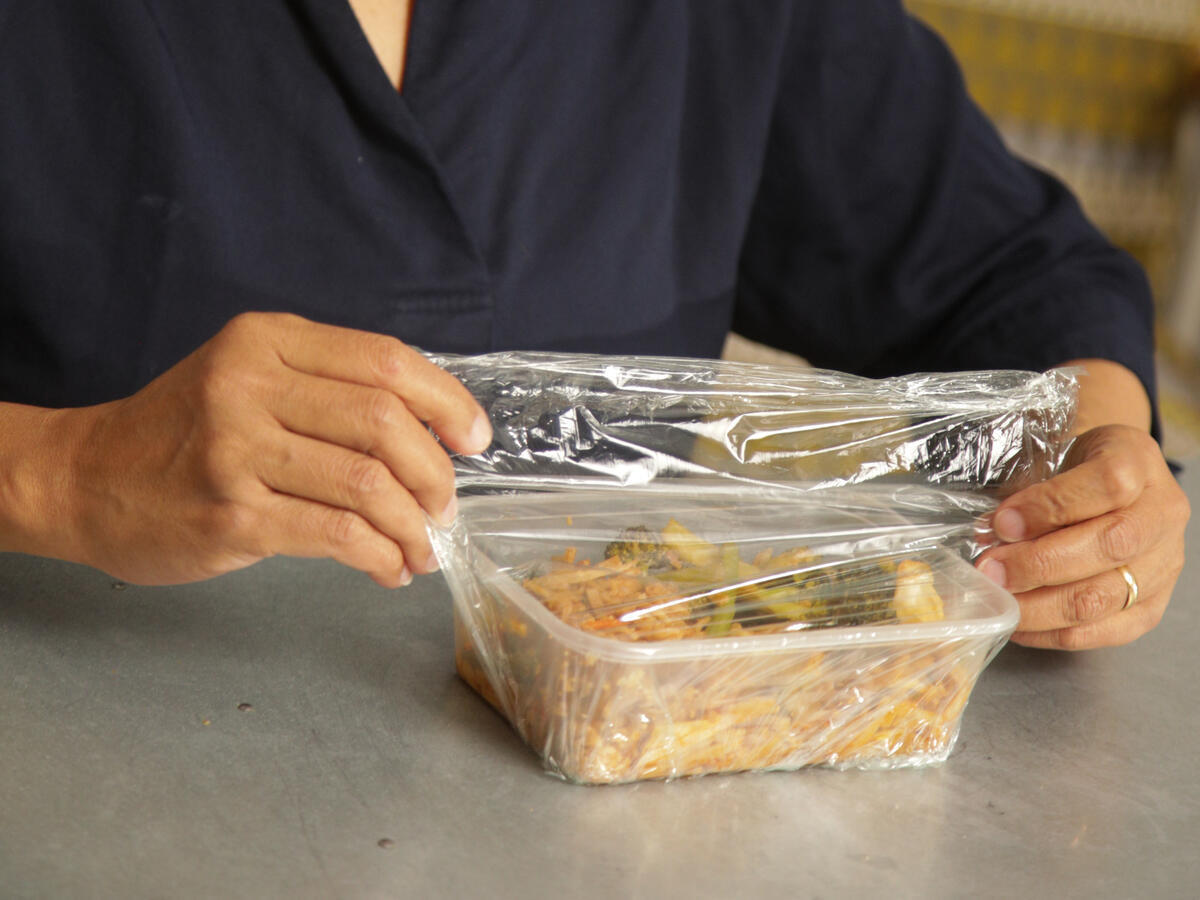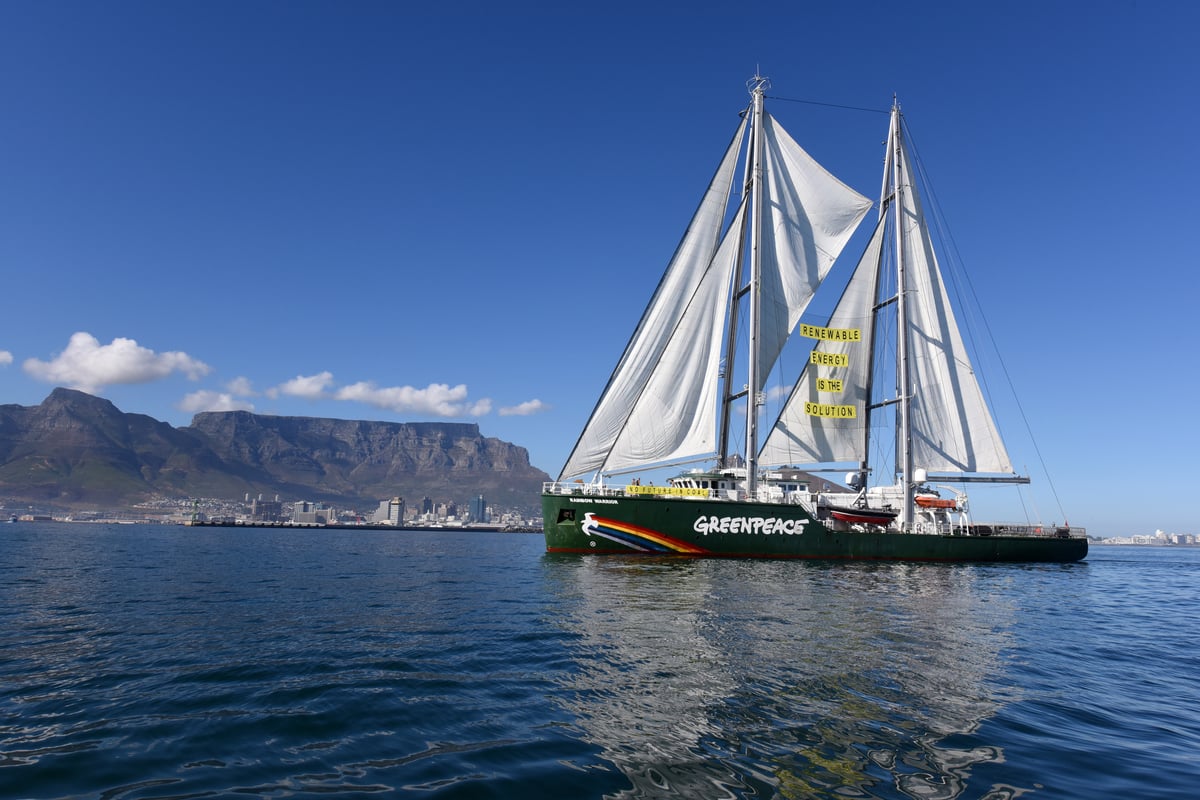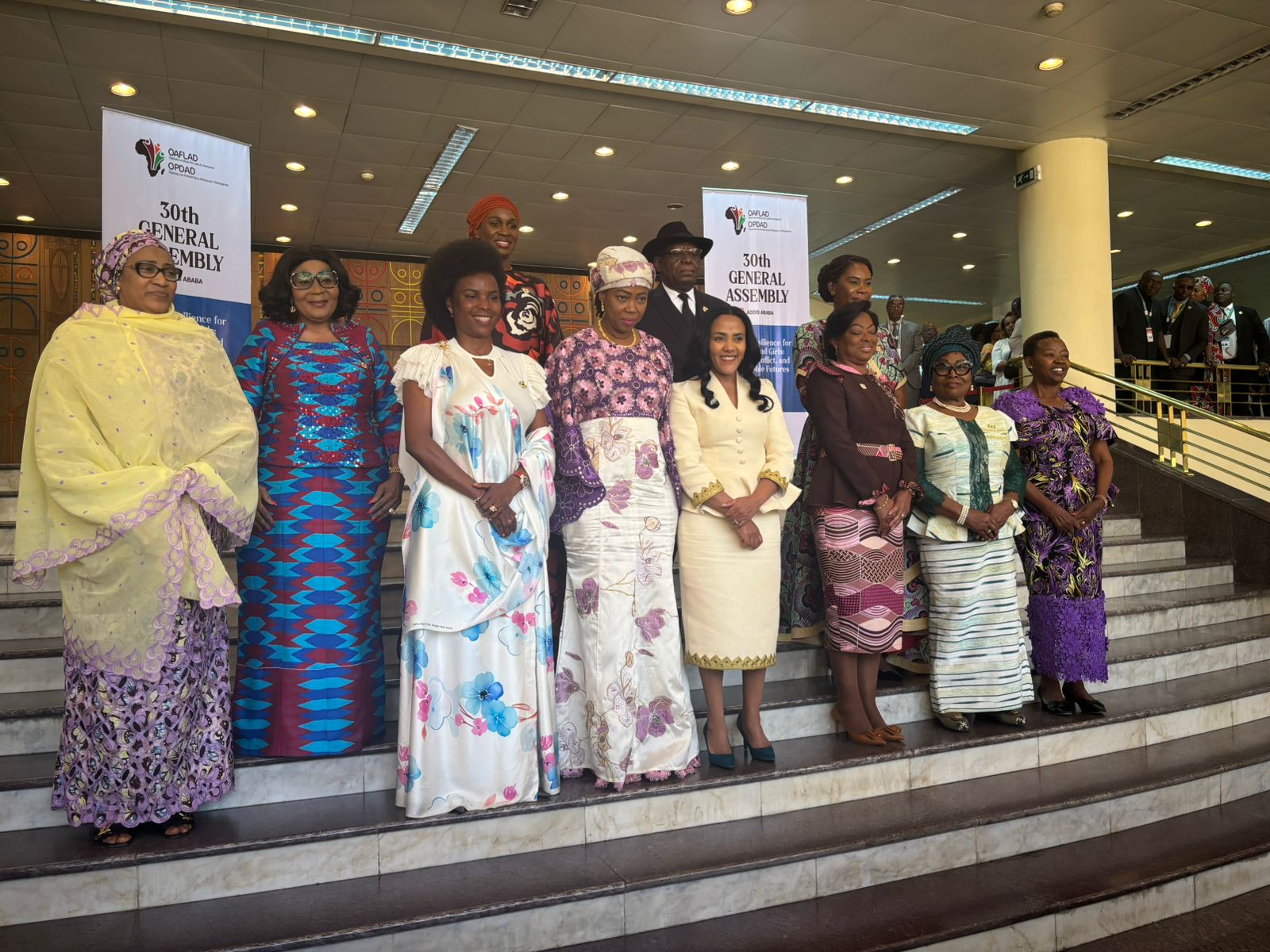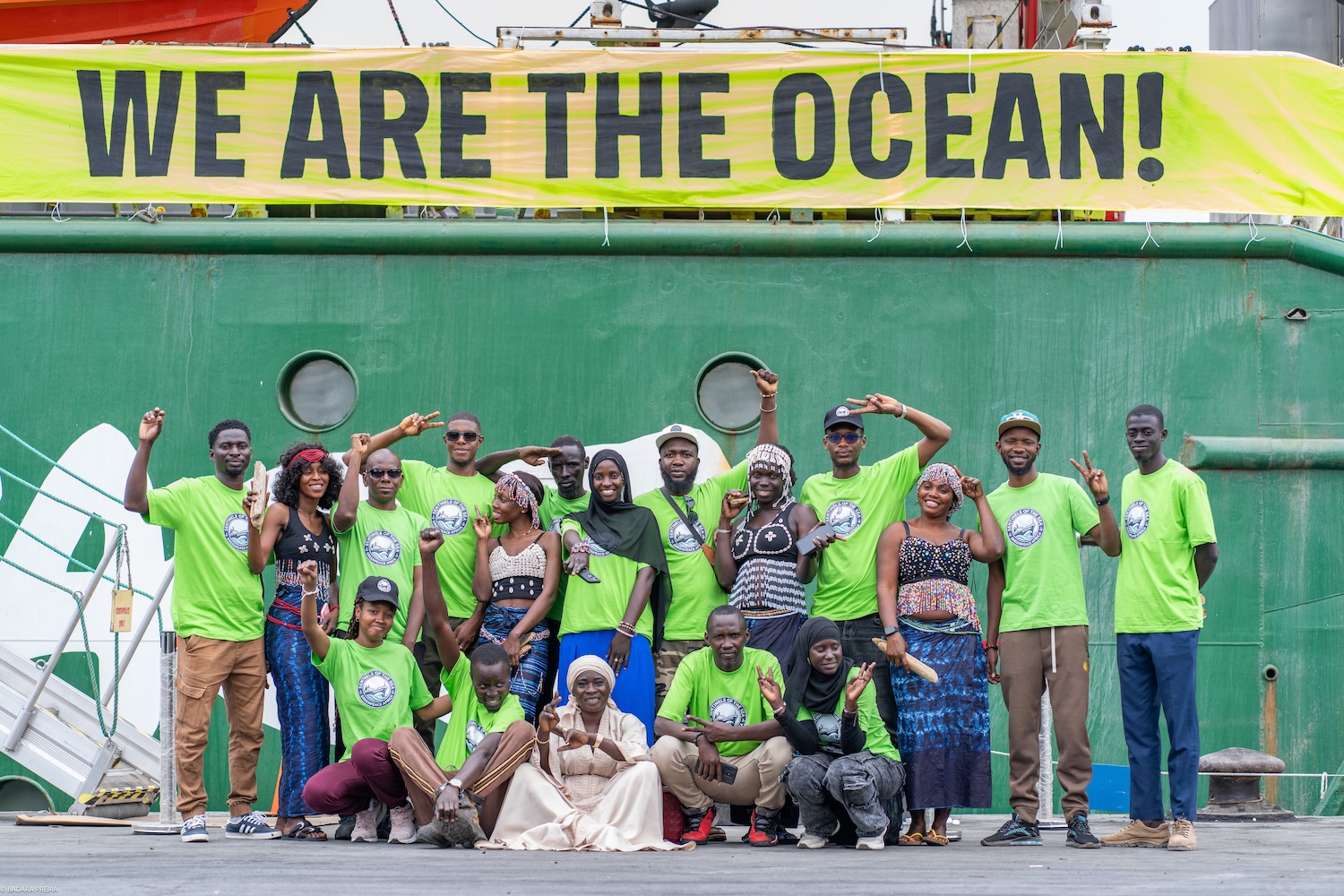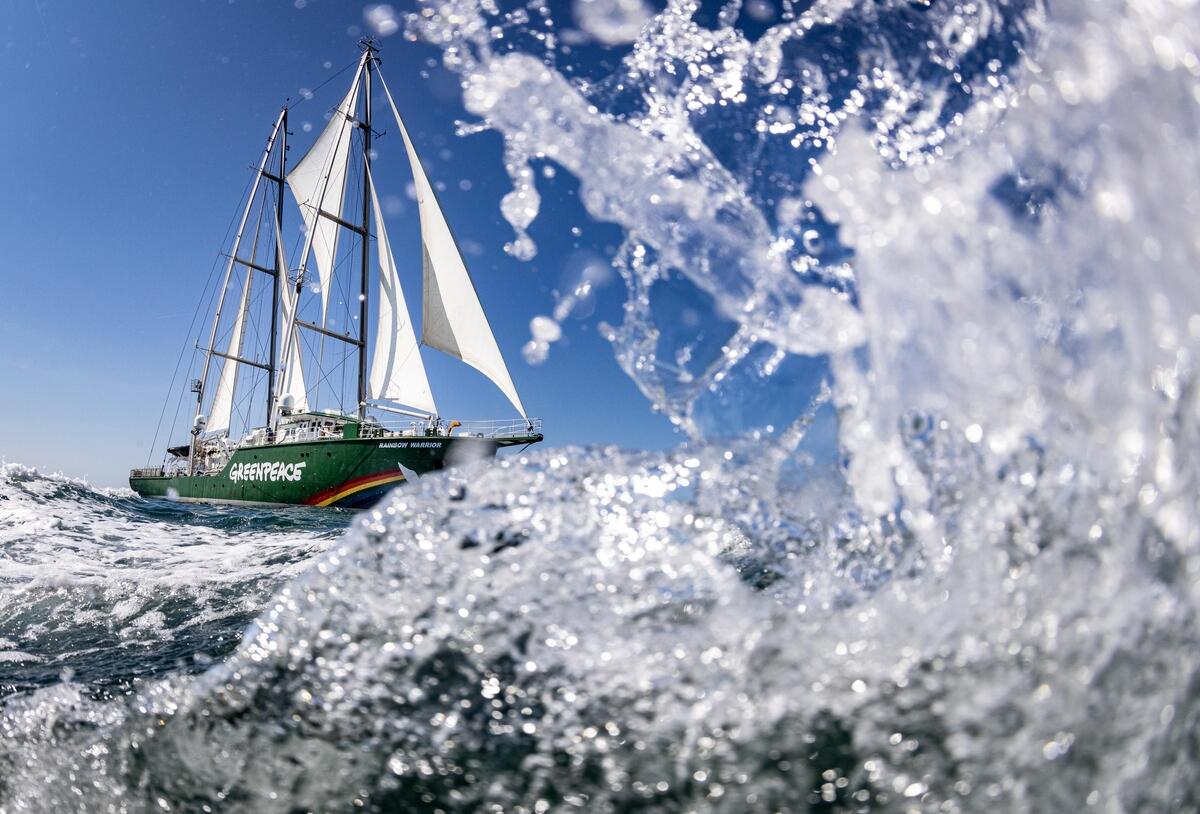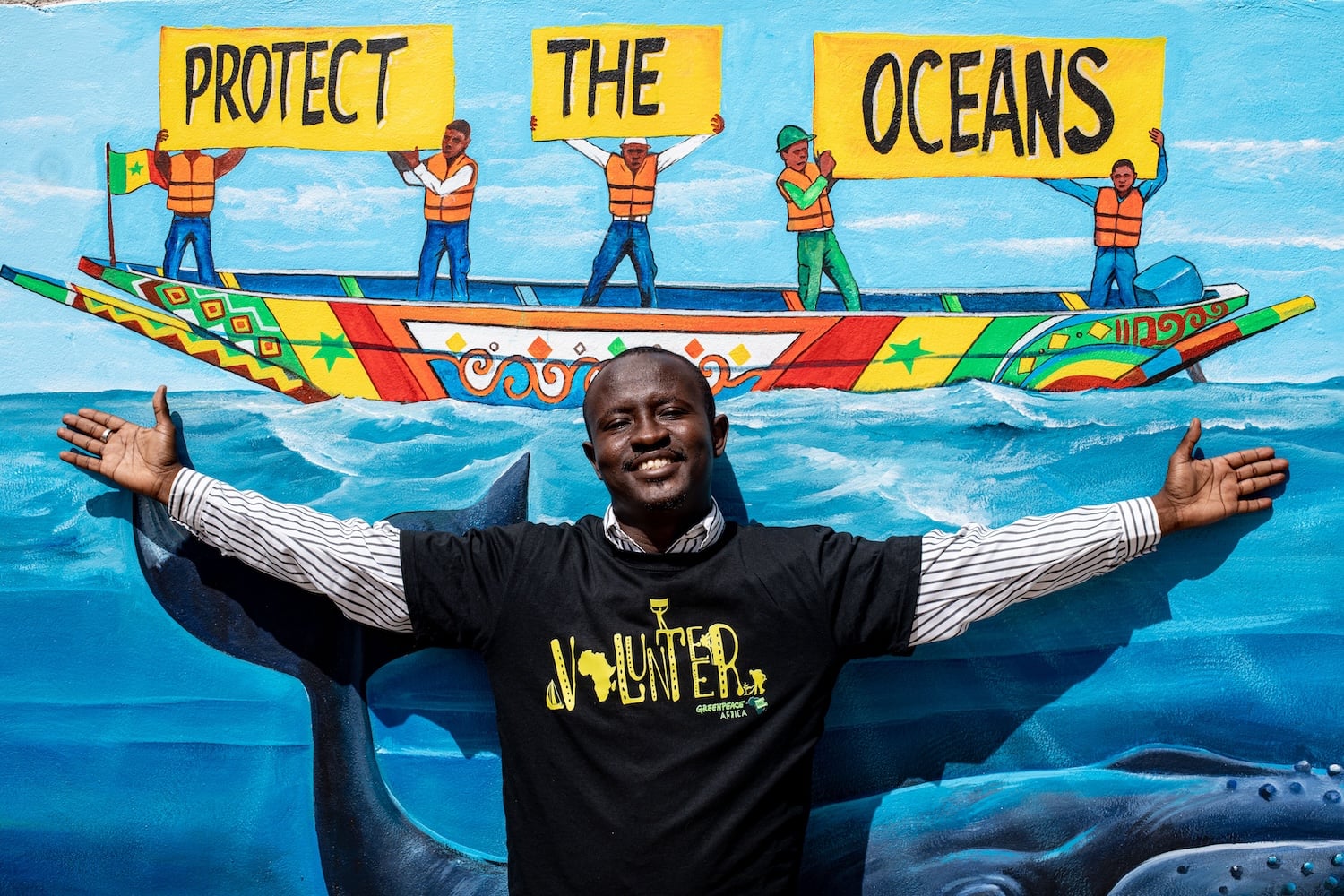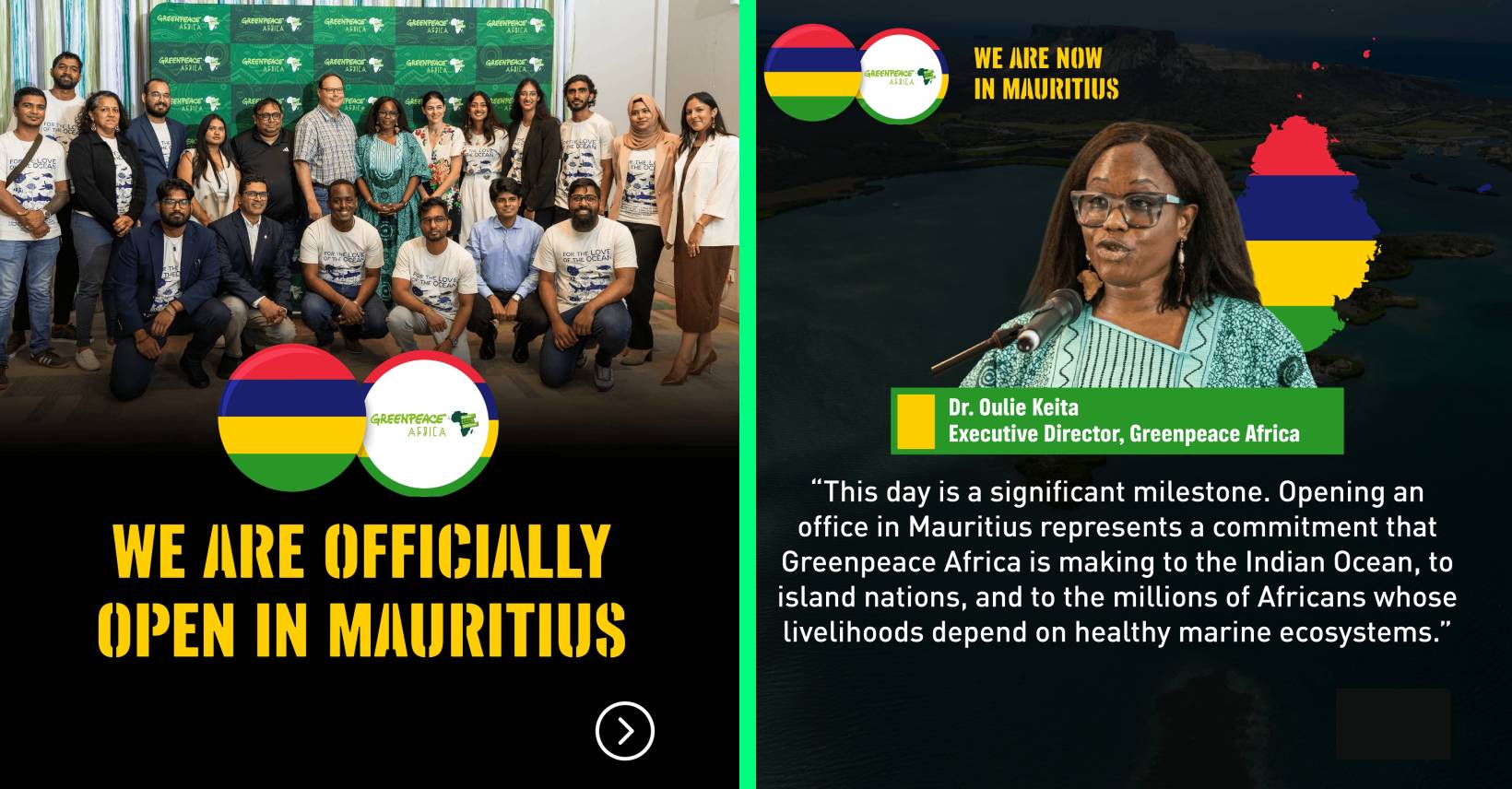Filtered results
-
Who is making decisions about Karura Forest – and why in silence?
Greenpeace Africa is in solidarity with Friends of Karura Forest following disturbing reports of tree felling and land disturbance inside Karura Forest without clear public communication or consultation.
-
A Youth Story: How Free Creative Spaces Helped Build a Youth-Led Movement
Ubunifu is a cornerstone for youth who desire to create change and have no idea where to start, or just want a hand to gently push them, as they did for us.
-
Reheating plastic food containers: what science says about microplastics and chemicals in ready meals
Scientific research increasingly shows that heating food in plastic packaging can release microplastics and plastic chemicals into the food we eat.
-
From Recognition to Results: The African Union Commission must deliver in 2026
Recognition was important. But recognition alone would not protect forests, secure water or strengthen sovereignty. One year later, the question is no longer whether the African Union understands the stakes.
-
Greenpeace Africa launches “Sentinels of the Sea” expedition to expose harmful fishing practices and strengthen ocean protection from the coast to the High Seas
Greenpeace Africa has launched “Sentinels of the Sea”, a major regional expedition aimed at exposing harmful industrial fishing practices, strengthening community-led sustainable fishing practice, and building momentum for stronger ocean protection in Senegal, Gambia, and beyond.
-
Greenpeace’s Rainbow Warrior docks in Cape Town to mobilise resistance against fossil fuel expansion in African waters
The iconic Greenpeace ship, Rainbow Warrior, has docked in Cape Town and opened its door to the public as part of a campaign challenging fossil fuel expansion and plastic pollution in African waters, while mobilising public support to defend ocean and climate justice.
-
Artists unveil street art around the world as historic Global Ocean Treaty comes into force
As the Global Ocean Treaty officially comes into force, artists worldwide unveil large-scale street art, celebrating the hard-won victory after two decades of campaigning. The global action, coordinated by Greenpeace, also marks the beginning of a crucial countdown to protect 30% of the world’s ocean by 2030.
-
Greenpeace Africa opens Mauritius office: let’s protect the Indian Ocean as High Seas Treaty comes into force
The wait is over. Yesterday, our environmental movement across Africa got a little bigger. We are proud to announce that Greenpeace Africa has officially opened its doors in Port Louis, Mauritius.

